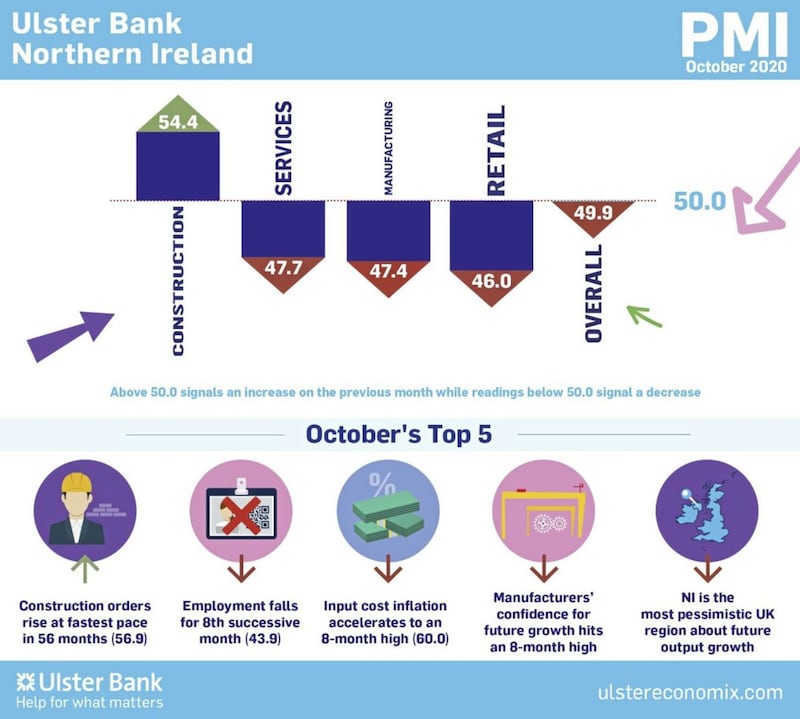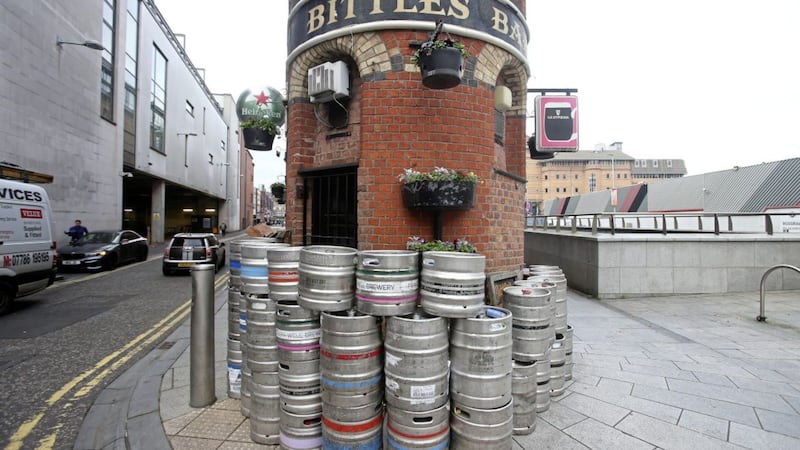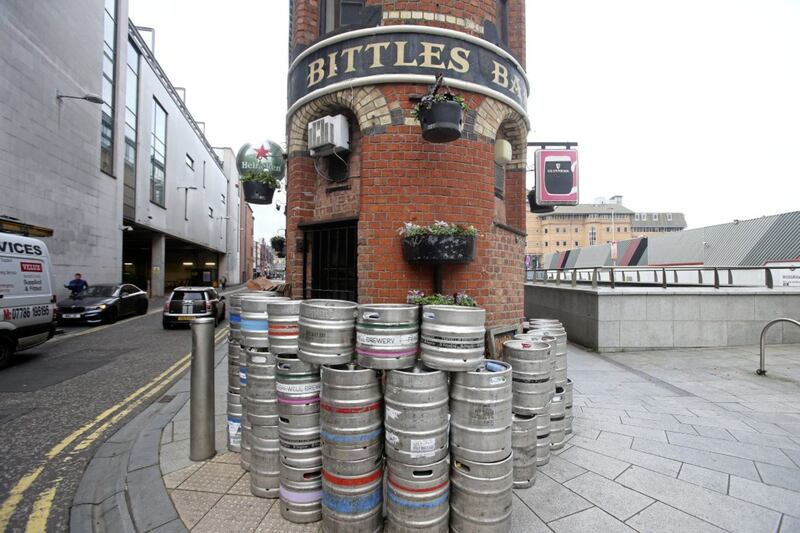THE reintroduction of Covid-19 restrictions will see the north’s economy contract by around 15 per cent in 2020, a new report from Ulster Bank has said.
The lender’s latest survey of businesses found that the partial lockdown of hospitality and close contact premises during October contributed to further economic stagnation.
After recording a rise in output over the course of the third quarter, Ulster Bank’s Purchasing Managers' Index (PMI) said that growth slowed again in October, largely due to the coronavirus pandemic.
The lender’s chief economist Richard Ramsey said the Northern Ireland economy is now set for an annual decline of around 15 per cent, more severe than some other forecasts.
Last month the north’s biggest lender, Danske Bank, predicted that the north’s economy will contract by around 11 per cent in 2020, and grow by 7 per cent in 2021.
Ulster Bank’s new analysis, compiled by IHS Markit, is based on a survey of 200 private sector firms from around the north.
The PMI found that one of the few exceptions to last month’s stagnation was in construction, the only sector to record both output and orders growth in October.
New orders increased at their fastest rate in 56 months, albeit from very low levels of activity.
A report published by Construction Information Services (CIS) Ireland on Friday showed the problem in the third quarter, with a significant decline in pipeline activity in the north for most sectors.
Two of the north’s biggest building firms, McAleer & Rushe and Graham, recently declared a significant pipeline of construction projects. But most of the major schemes are located in Britain.
The CIS report did point to a pick-up in the start of new residential building schemes in the third quarter.
Ulster Bank’s PMI said some firms reported strength in the housing market in October.

The survey also recorded some growth in new orders for manufacturers, but it showed rapid reversal in fortunes for services, following a relatively robust performance in September.
“Services orders slumped which is not surprising given the closure of the hospitality sector and other services firms due to lockdown,” said Richard Ramsey.
He said the data also showed significant falls in employment levels reported by manufacturing, services and retail firms.
The economist said the extension of the furlough period until the end of March 2021 will provide some much needed certainty for those businesses in an abnormally uncertain world.
But he said the report once again reflected the direct correlation between the coronavirus restrictions and economic decline.
“The resurgence of the Covid-19 virus and the reintroduction of lockdowns across Europe is expected to see economies contract over the course of the fourth quarter,” he said.
“Northern Ireland is not expected to be any different with the economy set for an annual decline of around 15 per cent for 2020.
“The longer the restrictions remain in place the deeper the contraction will be."





